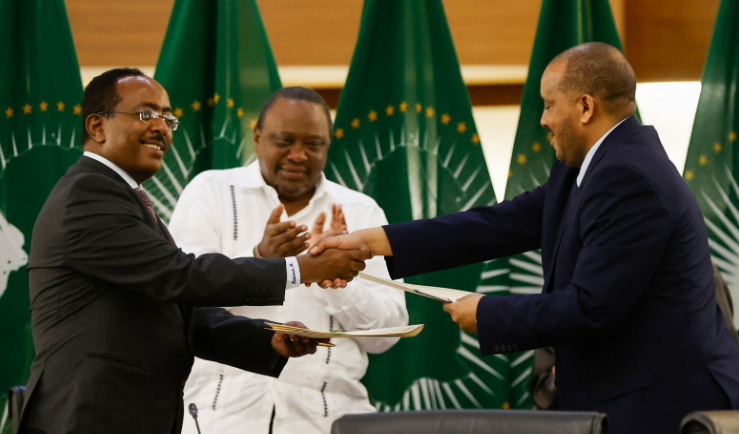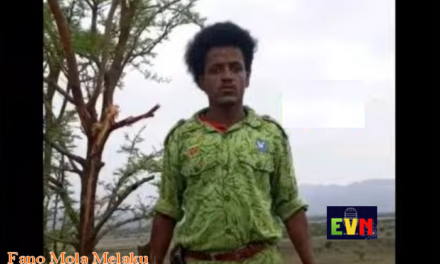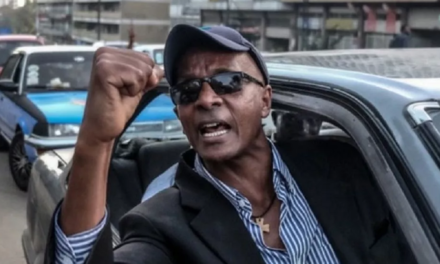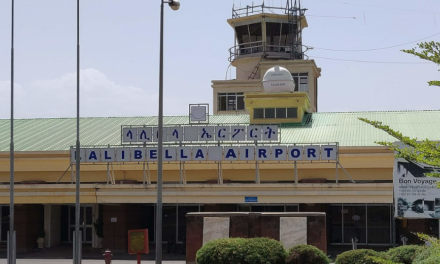By J Mark
Insecurity in the Horn of Africa is fueled by weak, divided, and unstable nations, making it challenging to find peaceful resolutions to conflicts and build national consensus. Ethnic and religious divisions also contribute to political turmoil and prolonged tensions among different groups.
Climate change exacerbates the region’s fragility, causing devastating droughts, extreme weather, and food insecurity. This adds to the complexities of an already precarious subregion.
The impact of the Ethiopian civil war lingers despite the Pretorial Peace Agreement. Serious allegations of war crimes and human rights abuses by the Ethiopian government and the Tigray People’s Liberation Front (TPLF) complicate the situation and undermine reconciliation efforts.
To address the complex challenges plaguing the Horn of Africa, a comprehensive and nuanced approach is needed. Promoting peaceful dialogue between conflicting parties and engaging all stakeholders, including ethnic and religious groups, will be crucial in finding lasting solutions and fostering peace in the region.
The humanitarian crises that continue to unfold in this area demand immediate and sustained aid efforts. However, challenges like aid theft in Ethiopia must be tackled head-on to ensure that assistance reaches its intended recipients, effectively addressing the dire needs of vulnerable populations.
Transparency and accountability play pivotal roles in the responsible distribution of aid, ensuring that resources are not misused or diverted for ulterior purposes. Upholding these principles will bolster the effectiveness of humanitarian efforts and instill public trust in the process.
Collaborative efforts are essential in tackling cross-border challenges and enhancing regional stability. By working together, neighboring nations can collectively address issues that transcend borders, leading to greater security and cooperation in the region.
Representing all ethnic and religious groups and respecting human rights are critical steps in fostering a sense of ownership and belonging among different communities. This inclusivity will strengthen the region’s stability and help prevent the escalation of violence between disparate groups.
The international community must unite in responding to the insecurity in the Horn of Africa. Disregarding the situation could have far-reaching implications on international security and economic interests. Neglecting instability may result in a resurgence of piracy in the Red Sea and the Gulf of Aden, posing significant threats to maritime security and trade routes.
Moreover, prolonged instability may create opportunities for terrorist groups and criminal organizations to exploit power vacuums, endangering both regional and global security. To mitigate these risks, a concerted global effort is required to address the root causes of instability and to work towards lasting peace in the region.
Engaging with diverse stakeholders is of paramount importance in fostering long-term stability. Governments, civil society, ethnic and religious groups, as well as regional organizations, must all be active participants in shaping the future of the Horn of Africa.
Promoting national security while encouraging dialogue and cooperation is a delicate balance that must be struck. It is imperative to find lasting solutions without alienating key actors and exacerbating tensions in the process.
The United States must prioritize diplomacy, conflict resolution, and mediation efforts in its engagement with the Horn of Africa. Supporting regional organizations and peacekeeping missions can serve as effective tools in preventing and managing conflicts.
Moreover, good governance, accountability, and respect for human rights are indispensable pillars for lasting stability in the region. Encouraging transparent and responsible governance while promoting human rights will contribute significantly to the stability of the Horn of Africa.
Trade and economic partnerships can serve as powerful catalysts for fostering stability and prosperity in the region. By creating economic opportunities, reducing poverty, and encouraging peaceful cooperation between countries, the Horn of Africa can experience sustained growth and a more secure future.
Finally, addressing climate change and environmental issues is equally imperative for promoting long-term stability in the region. By tackling these challenges head-on, we can create a more sustainable and resilient Horn of Africa for generations to come.







